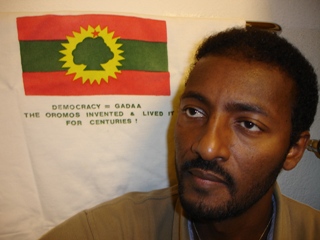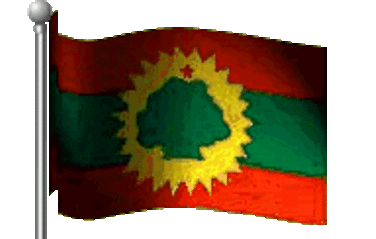4th London International Oromo WorkshoP On 3 July 2010
At City University London
Call for papers
The scramble for land, ‘investment’ and environmental degradation in Oromia: consequences for the future.As the world population is growing food security is becoming one of the most challenging issues facing the world leading to a global scramble for lucrative farmlands. Subsequently, some governments and private investors are buying up farmland in Africa and Asia to grow not only food but other commercial products. This high-stakes game of real-life monopoly of farmland is leading to ‘neo-colonialism’.
Oromia is an oasis on the frontline of the ever expanding Sahara desert. Its ecosystem is very fragile and requires delicate balancing act in terms of the environment and its sustainability. Notwithstanding this, the Ethiopian regime has already leased millions of hectares of fertile Oromo farmland to foreign investors by displacing Oromo farmers from their lands. For example, Saudi Arabia is one of the biggest and most aggressive buyers of land. This spring, the king of Saudi Arabia attended a ceremony where he took delivery of the first export rice harvest, produced exclusively for the Kingdom in hunger-stricken Ethiopia. The lowlands of Oromia, where higher rainfall assists the cultivation of grains, flower plantations and bio-fuel crops, are particularly vulnerable.
Land in Oromia is not only being sold to capitalists for the purpose of industrial-scale farming but also being invaded from many directions, including by the so-called investors, mining companies, extensive re-settlement as well as urbanisation programmes without due respect for protection of the environment.
What is more, it is not known if these companies carry out environmental impact assessments or do anything to protection the ecosystem. The environmental impact of such unregulated large-scale farming is alarming. Evidence is emerging that underground water and rivers are being severely polluted from unregulated pesticides use by commercial flower plantations as a result of which a number of people are dying.
On the other hand, there are some who argue that the activities of the investors may help poor nations to achieve the development and modernization of their ailing agricultural sectors, and that the foreign investors will be able to produce enough food for the overpopulated planet. However, its negative environmental and societal impacts on the indigenous people deserve a serious attention. The issue of land property rights in territories such as Oromia is complex and driving farmers from their ancestral land can lead to a serious societal breakdown.
This one-day multidisciplinary workshop will examine the scale of the problem and the environmental degradation, economic, social and health problems facing the Oromo people as the result of the farmland wholesale to foreign investors and will aim to formulate a consensus on how to mitigate its burden on the Oromo people.
The London International Oromo Workshop 2010 Organizing Committee invites proposals for this one-day workshop addressing research areas related to the conference theme.
Researchers can submit workshop proposals to partake as panellist at the Workshop via email: oromo.international@yahoo.co.uk by 15th March 2010.
WORKSHOP ORGANIZING COMMITTEE



0 Comments:
Post a Comment
<< Home